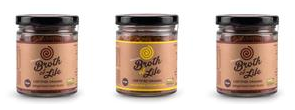
Written by Deena Shanker
Everybody's talking about gut bacteria.
Pick a disease or disorder, and somebody, somewhere, has said that a probiotic supplement—an over-the-counter, unregulated pill usually filled with a single strain of friendly gut bacteria—might cure it, whether it’s cancer, obsessive-compulsive disorder, or a yeast infection.
But there’s very little evidence that probiotic supplements do any good. “There’s a lot of promise here but not a lot of proof yet,” said Cliff McDonald, associate director for science at the Centers for Disease Control and Prevention's Division of Healthcare Quality Promotion.
That promise has built a $34 billion market as of last year, according to a new report from BCC Research, $6 billion of which was in supplements. The biggest share of the probiotics market was in food and beverages, at $24.8 billion.
Seres Therapeutics, a microbiome-based biopharmaceutical company in Cambridge, Mass., is developing a pill, subject to a rigorous approval process under the Food and Drug Administration, to tackle recurrent Clostridium difficile. (The digestive system's microbiome is the community of healthy gut bacteria that normally reside in the body.) Half a million people a year are infected with C. diff in the U.S., the CDC estimates, with 29,000 annual deaths related to the diarrheic bacterium. More than 65 percent of C. diff infections involve exposure in a health-care facility, according to a 2015 study, creating more than $4.8 billion in excess health-care costs at acute-care facilities alone.
Seres aims to put the science behind a proven treatment of recurrent C. diff, fecal transplants, in a pill, which wouldn't require a colonoscopy. Like probiotic supplements, it’s a gut bacteria product. Unlike the supplements, by the time it’s available it will have gone through the FDA wringer. It will contain about 50 strains of bacteria proven effective in treating C. diff and will require a doctor's prescription.
Recurrent C. diff is an obvious entry point for Seres, said Chief Executive Officer Roger Pomerantz. “We asked, what is the lowest-hanging fruit?” But it’s hardly the end. The company has built a microbiome library of 14,000 strains of human bacteria it hopes will help it treat a range of diseases, eventually without needing feces at all.
Seres has embarked on the research with some pretty lofty goals, including finding treatments for obesity, liver disease, and cancer. It has partnerships with Massachusetts General Hospital, the Mayo Clinic, Memorial Sloan Kettering Cancer Center, and other respected medical institutions.
“We will figure out exactly what’s wrong with the microbiome, design a drug, and then pull the organisms out with our library, never touching a human donation,” Pomerantz said.
For nearly two thousand years, doctors have looked to this unlikeliest of places for medicine. One of the earliest documented applications is from the fourth-century Chinese medical doctor Ge Hong, whose “yellow soup” recipe to treat diarrhea included a healthy person’s dried or fermented feces. Sixteen hundred years later, in 1958, patients infected with C. diff received the first known human fecal transplants.
Today the effectiveness of fecal transplants (formally known as fecal microbiota transplants) to treat recurrent C. diff is supported by a long list of studies, with researchers attributing the results to the restoration of the microbiome. OpenBiome, a nonprofit stool bank, shipped 1,828 treatments in 2014, a number that ballooned to 7,140 treatments in 2015 and looks to be eclipsed this year, with 4,323 treatments shipped to its clinical partners through May 31. And these numbers don’t take into account the transplants performed through directed fecal donations.
Seres's lead product candidate, SER-109, will treat recurrent C. diffwith four capsules taken orally instead of with transplants. While fecal matter is the raw material for the pills, the final product consists only of the spores necessary to treat the infection, which will have been extracted and purified.
SER-109 is expected to become the first oral microbiome therapy approved by the FDA, though Seres declined to predict exactly when it will arrive. Results from the latest trials are due by midyear, and Phase 3 trials are scheduled to follow later in the year. Seres hopes to follow up quickly with SER-287, a drug to treat ulcerative colitis, which could be the first microbiome drug to treat a chronic disease, and SER-262, to treat primary C. diffbefore it turns into the recurrent kind.
Other companies are racing to collect enough data for FDA approval, but right now Seres, which is publicly traded, looks to be the one to beat. “Seres is probably going to be the first one that’s going to knock at the FDA’s door,” said Mohan Iyer, chief business officer at Second Genome, a microbiome company studying how to treat disease with the compounds produced by gut bacteria instead of the gut bacteria themselves.
“SER-109 is poised to be first-in-class among fecal microbiota transplant-derived drugs,” Joseph Schwartz, an analyst at Leerink Partners, wrote in a May report. The report says the latest trial results "wowed the Street" but warns that the company could still be held back by "disappointing clinical data" and obstacles in the regulatory process.
Another top contender is Rebiotix. Its RBX2660 is also designed to treat recurrent C. diff but, unlike SER-109, is administered with an enema; an oral version is in development. The treatment also differs significantly from Seres's in formulation, including thousands of kinds of microbes from the donor’s stool, compared with SER-109's 50 or so, as many as could be preserved and some of which haven’t even been identified.
“We make sure we have a minimum concentration of certain kinds that we know the patients lack,” CEO Lee Jones said. “But we don’t identify all of them. There’s no way to do that.” A recent study estimated that 1014 bacteria are in the human gut, most of which have never been isolated. Jones said the drug could hit the market by 2018.
“I don’t know who is going to make it across the line first,” said Gail Hecht, director of gastroenterology and nutrition at Loyola University Medical Center and chairwoman of the American Gastroenterological Association for Gut Microbiome Research & Education. Hecht has attended a Seres advisory board meeting but doesn't have a financial interest in the company. “It is indeed a race,” she said.
The medications have been shown to be similarly effective—with no C. diff-associated diarrhea for 29 of 30 of Seres's patients and 27 of 31 of Rebiotix's, in the companies' latest results—and equally safe. Adverse reactions for both are limited to such problems as moderate diarrhea and abdominal cramping, which could be from the C. diff itself. Both have been designated as "breakthrough therapies" by the FDA, allowing for an expedited approval process, and both are likely soon to provide an at-home alternative to fecal transplants.
Seres does have at least one distinct market advantage. “Patients have different preferences,” Hecht observes, but “in general, people don’t particularly like enemas.
BUY DEHYDRATED BONE BROTH
BUY FULLY DISSOLVING BONE BROTH POWDER



